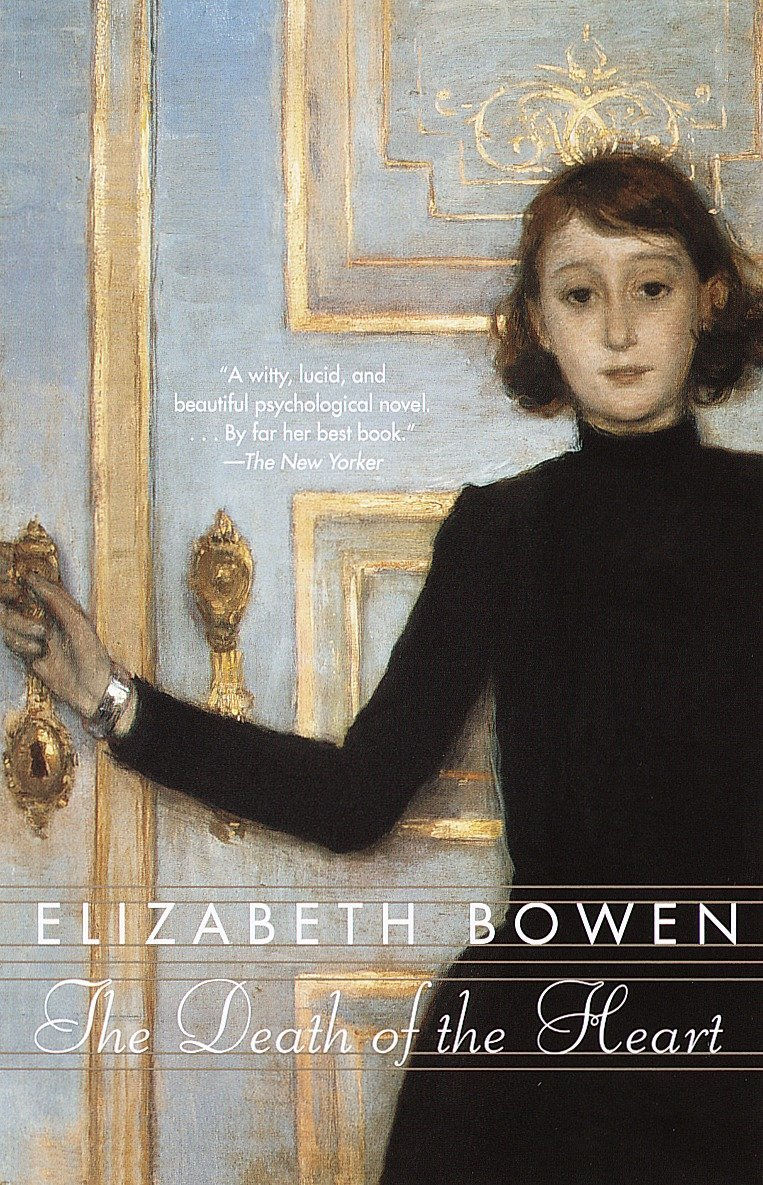
"Death of the Heart" by Elizabeth Bowen: An English Classical First Translated into Russian A Reference Novel of Youth, Growing Up and Lost Illusions.
Elizabeth Dorothea Cole Bowen, CBE was an Anglo-Irish novelist and short story writer.
Written in 1938 and finally translated into Russian, "Death of the Heart" by Elizabeth Bowen rises on the shelf with British classics as the missing piece of the puzzle, throwing a bridge from the modernism of the first third of the twentieth century to the more familiar to us novel of later decades. Tenacious attention to the smallest details, extreme sharpness of focus (not a single character, not a single material object is considered secondary by Bowen), elements of the stream of consciousness, as well as an openwork composition with numerous gaps and omissions make Death of the Heart akin to the writer's older contemporaries. - Virginia Wolfe and Ford Madox Ford. Dry irony and outward bravado, combined with deeply hidden tension, will make you remember Somerset Maugham, Evelyn Waugh and John Fowles, and of our contemporaries - Julian Barnes, Alan Hollinghurst and Edward St. Aubin. The burlesque and light smack of absurdity, especially noticeable in dialogues, refers to the books of Gilbert Keith Chesterton. In a word, no matter what semantic range you take within the British literary canon, Elizabeth Bowen's novel will be incorporated into it in the most organic and dignified way, while clarifying, supplementing and accentuating a lot.
However, the value from the point of view of the history of literature is not the only and certainly not the main merit of "Death of the Heart". Bowen's interpretation of the chamber, almost intimate story of the growing up of young Portia Kwain, which lies at the heart of the novel, turns into a universal and timeless description of the collision of sinless youth with the imperfect world of maturity, a meeting, so to speak, of William Blake's songs of innocence with his songs of experience.
At the age of fifty, old Mr. Kwaine fell in love with a completely inappropriate woman, conceived a daughter with her, and then, expelled from the house by his respectable first wife, moved with a new family to Europe - away from London society, which had closed its doors for the apostate forever. ... 16-year-old Portia, the daughter of Mr. Quain from this dubious union, grew up far from her homeland, in France and Switzerland, but after the death of her parents, she has to move to London with her half-brother Thomas, a prosperous owner of an advertising agency, and his wife, social beauty Anna. This was the dying wish of the father, who asked the eldest son to give shelter to the orphaned girl for at least a year. The novel covers half of this year - from the winter cold to the beginning of summer, and contains new acquaintances, a trip to the sea, and first love (her unworthy object becomes the windy and hysterical Eddie, a clerk in Thomas's office), and the betrayal of elders , and an escape into the unknown, and a deep inner transformation - sad, but inevitable.
The first and most obvious way to read Elizabeth Bowen's novel is to see it as a classic story about a poor orphan, ingenuous and pure, entering into a fatal confrontation with vicious and two-faced people who are unable to give her warmth and care. Indeed, Portia is the only character in the novel who has not mastered, as one of the older heroines says, "concepts." In practice, this means that pretense is absolutely alien to her, she responds to any emotion with all her heart, she says what she thinks, and resolutely does not understand the artificial difficulties that others around her seem to deliberately clutter up with. From Thomas and Anna (and later from Eddie) she trustingly awaits love, and not having received it, at first she looks for the reason in herself, not daring to suspect others of coldness, callousness or banal weakness.
However, through this top layer, the next one peeps through (Bowen's literary technique is generally entirely built on half-tones and the finest glazes): the reverse side of Portia's sinlessness is her uncompromising and egocentrism. Thomas, Anna, Eddie and other heroes in different ways and at different times have experienced their own "death of the heart" and have changed, along with moral purity and illusions, having lost their youthful diamond hardness. They are weak people, but not villains, and for the most part they are driven by good feelings that they simply cannot always follow. But Portia doesn’t care about their motives, she doesn’t want to look into their souls, she doesn’t care what they went through and why they became what they became - her innocence knows no compassion and participation, she requires everything - or nothing. Therefore, when, in anger, Portia throws Eddie “you're afraid of me,” she says the pure truth: the ruthless young angel, by virtue of his own impeccability, is not capable of compassion for the weaknesses of others, is hardly able to get along with ordinary people who have gone through disappointment, loss, chilling and fatigue.
It is this double (and in fact, even more complex and multidimensional) optics that transforms Elizabeth Bowen's novel from a straightforward opposition of good and bad, truth and untruth, into a much more realistic conflict of two truths, each of which imagines itself to be the only, complete and absolute. And the fact that such a drama is played out on the most ordinary material, without exaggeration to every person familiar firsthand, makes Death of the Heart a real high tragedy - but a very English tragedy, and therefore deliberately quiet, mostly internal, completely devoid of pathos and ostentatious anguish.
This article was sponsord by David Thomas
Commenti